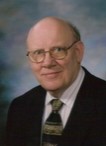A Quote by Stendhal
Mathematics allows for no hypocrisy and no vagueness.
Quote Topics
Related Quotes
When people talk, they lay lines on each other, do a lot of role playing, sidestep, shilly-shally and engage in all manner of vagueness and innuendo. We do this and expect others to do it, yet at the same time we profess to long for the plain truth, for people to say what they mean, simple as that. Such hypocrisy is a human universal.
Mystery is an inescapable ingredient of mathematics. Mathematics is full of unanswered questions, which far outnumber known theorems and results. It's the nature of mathematics to pose more problems than it can solve. Indeed, mathematics itself may be built on small islands of truth comprising the pieces of mathematics that can be validated by relatively short proofs. All else is speculation.
Hypocrisy means deliberately pretending. None of us lives up to his ideals; none of us is all that he would like to be or all that he could be in Christ. But that is not hypocrisy. Falling short of our ideals is not hypocrisy. Pretending we have reached our ideals when we have not - that is hypocrisy.
To borrow from Mark Twain, I tend to think that reports of the death of supervaluationist approaches have been greatly exaggerated. The arguments that have been given against supervaluationism usually aim to show that it is just incoherent. But it's not. It may be false, as a general theory of vagueness, but it's a coherent and, I think, even correct way to think about some vagueness.
If you ask ... the man in the street ... the human significance of mathematics, the answer of the world will be, that mathematics has given mankind a metrical and computatory art essential to the effective conduct of daily life, that mathematics admits of countless applications in engineering and the natural sciences, and finally that mathematics is a most excellent instrumentality for giving mental discipline... [A mathematician will add] that mathematics is the exact science, the science of exact thought or of rigorous thinking.
Mathematics has two faces: it is the rigorous science of Euclid, but it is also something else. Mathematics presented in the Euclidean way appears as a systematic, deductive science; but mathematics in the making appears as an experimental, inductive science. Both aspects are as old as the science of mathematics itself.






































